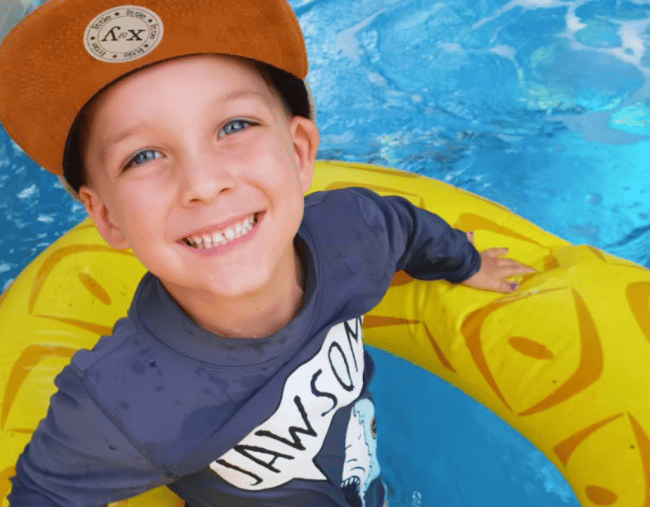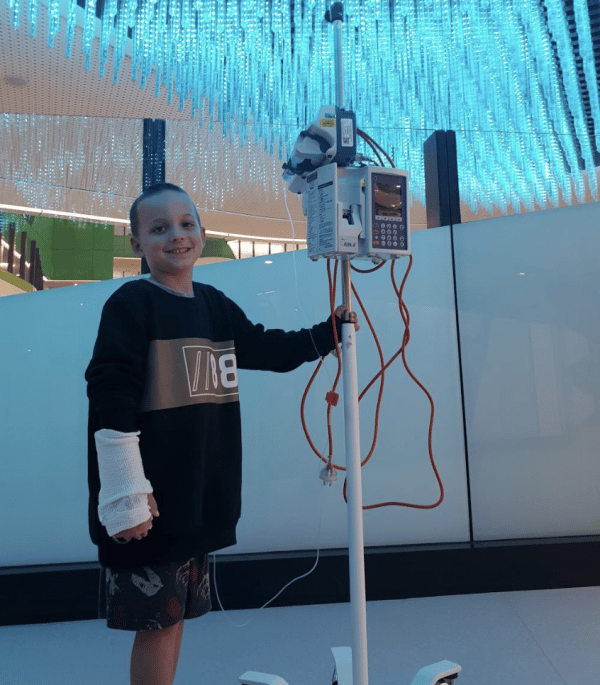
Jacqui Bradshaw was an exhausted mum of a newborn baby when she took her son Mason, who was just three-and-a-half months old, to the family doctor.
A normally happy and well-sleeping baby, Mason woke one morning after a poor sleep, clearly agitated. But it was more than that.
“There was something not right about the way he was holding his leg,” Jacqui tells Mamamia. “I went to bounce him on his hip, and he was holding his left leg out strangely.”
Concerned, Jacqui took him to the doctor to get checked out by her local doctor in Darwin. On the basis of a suspected broken leg, little Mason was sent for x-rays, but the results were inconclusive. So the doctor ordered his leg to be placed in a half-leg cast.
After that was done, Jacqui returned home with her baby, but noticed a few days later that the plaster had seemingly rubbed against his leg because there was bruising around that area of the cast. As a result, her GP then sent Jacqui to hospital – and that’s when her nightmare really began.
“It was the worst day of my life. The first thing the nurse at the hospital did was strip Mason off, and check his body for bruising. She found a yellow bruise on his rib, and became really worried.”
After repeat x-rays, the nurse told Jacqui that he had a spinal fracture, and that because Mason was under two years of age, mandatory reporting laws applied – which meant that Jacqui had to face an interview with Child Protection Services.
What to do for a parent with a child in hospital. Post continues below.

